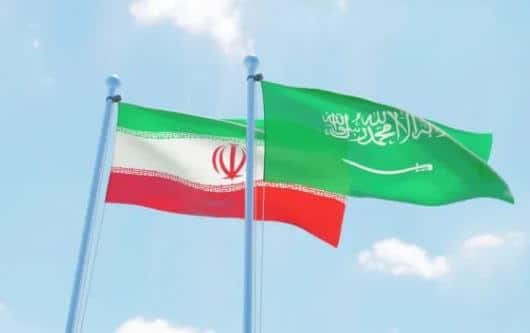Iran and Saudi Arabia re-established diplomatic relations with one another, the two countries announced on Friday. Representatives from the countries were reportedly engaged in four days of talks in Beijing. The meeting was not known publicly in the West.
The countries agreed to re-open their embassies to one another within two months and committed to “respect the sovereignty of states and the non-interference in the internal affairs of states.” This is a reference to the Saudi invasion of Yemen and the two countries’ backing of opposed sides in the Syrian civil war, and is also China’s current preferred global norm for international relations.
“Beijing’s brokering of the re-establishment of diplomatic relations between the countries is a welcome, if somewhat surprising development,” said John Calabrese, director of the Middle East-Asia Project at the US-based Middle East Institute think-tank. Talks had previously been ongoing in Baghdad.
Characteristically, China and the two parties have made little information available about the deal and how exactly the parties were brought to the table. Chinese state media has presented the meeting as a noble exercise in peace-making.
Global Times trumpeted the deal as evidence of waning US influence. A spokeperson from the Foreign Ministry says it shows “China’s diplomatic philosophy, which aims to promote peace and development” and that China opposes “geopolitical competition” in the Middle East.
“China looks forward to seeing closer communication and dialogue between Saudi Arabia and Iran and stands ready to continue playing a positive and constructive role in facilitating such efforts. This will help regional countries to get rid of external interference and take the future into their own hands,” said the spokesperson.
Diplomatic relations between Iran and Saudi Arabia had been broken off for more than seven years. The trigger was the execution of a Saudi-born Shia cleric by the Saudi government in January 2016, after which a mob stormed the Saudi embassy in Tehran.
However, relations have been hostile ever since the 1979 Iranian Revolution. The Iranian theocratic government has denounced the Saudis as agents of the US, while the Saudis criticise the Iranians for fomenting instability by exporting their revolution. The two countries backed opposite sides in the Syrian civil war.

For its part, China has been courting both Iran and Saudi Arabia as crucial energy suppliers. In December, Premier Xi told a summit in Saudi Arabia that it hopes to buy oil from the Middle East in yuan.
Given its hostility to the US, Iran has long been a natural ally of China. But Saudi Arabia, once a key US ally, has also been shifting closer to China. The US has been much more critical of the kingdom on human rights grounds in recent years, as the shale boom made the US the world’s largest oil producer and is expected to make the US a net crude oil exporter in 2023.
Follow Christian on Twitter for more news updates.
Sign Up To Our Free Newsletter